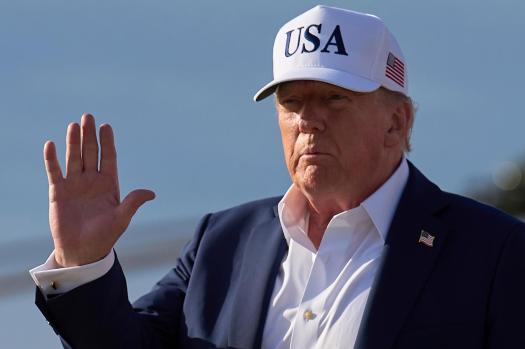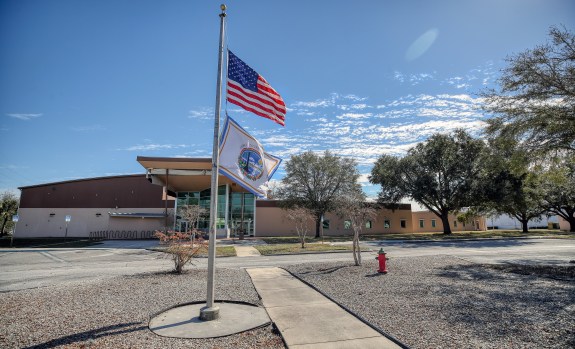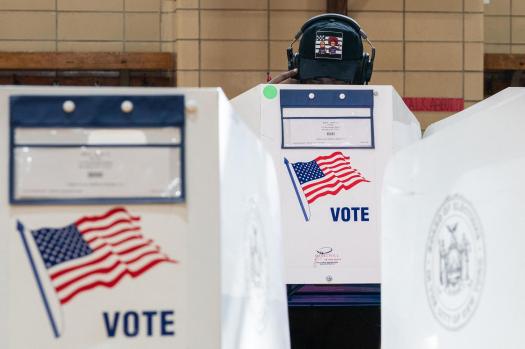The agenda of this week’s meeting between President Donald Trump and five African heads of state in Washington, D.C., is not the only thing that merits attention; what it tells about a changed U.S. foreign policy is equally important. A more strategic restructuring of U.S. influence based on transactional power and private-sector diplomacy is taking place behind the headlines. What occurs in Africa is already influencing discussions from Capitol Hill to towns throughout Florida on topics ranging from immigration flows and port security to underwater cables and vital minerals.
This summit’s scope is exceptionally limited: only five countries—Gabon, Guinea-Bissau, Liberia, Mauritania, and Senegal—were invited, noticeably leaving out regional powerhouses like South Africa and Nigeria. That exclusion is a tactic, not a mistake. Faster deals, less ideological conflict, and a move away from pan-African ambitions or democratic reform agendas are all benefits of having fewer voices. This is deal-first diplomacy at its most basic level, and it not only heralds a new approach to Africa but also a reinterpretation of American engagement—one that is shamelessly transactional rather than moral or imperial.
Every leader contributes something that the White House desires. Brice Oligui Nguema of Gabon provides manganese and other essential minerals. Joseph Boakai of Liberia is looking for money in return for iron ore. U.S. Africa Command values the stability of the Sahelian route, which Mohamed Ould Ghazouani of Mauritania provides. The United States is interested in surveillance and intelligence exchange because Umaro Sissoco Embal in Guinea-Bissau is situated along a trafficking corridor. Additionally, Diomaye Faye of Senegal contributes new tech infrastructure and the possibility of serving as a digital gateway. These bilateral alignments demonstrate a clear shift from multilateralism to focused leverage and from aid to trade, even if a larger meeting is allegedly scheduled for September.
Trump’s approach to Africa is based on the well-established notion that political stability is fostered by trade and commerce. This notion has acquired bipartisan support in the wake of recent coups and constitutional changes throughout the continent. This reasoning is supported by the summit’s emphasis on regional trade, infrastructure, energy, and agriculture.
But what’s striking is how much Trump’s America First philosophy resembles the neoliberal market-first paradigm that it purports to oppose. His domestic constituency, which is wary of help and attracted to a president who strikes deals rather than checks, finds him appealing. He exchanges diplomats for negotiators, embassies for executives, and long-term development objectives for immediate leverage. This is an acceleration of previous policies, lacking the democratic language, rather than a departure from it. Values are no longer as important in U.S. involvement as velocity: speedy access, rapid agreements, and little oversight.
This new U.S.-Africa strategy is materially ambitious even if it appears to be lacking in ideology. There is a convergence at its core: enterprise-driven diplomacy, security goals, and vital minerals. The five invited nations make up a coastal corridor that is abundant in natural resources and maritime assets that are essential to great-power competition and counterterrorism.
None of these nations are under Russian influence, in contrast to Mali, Burkina Faso, or Niger. This presents an opportunity for the United States to increase its presence in West Africa without going to war. Based on the idea that Sahelian instability doesn’t stay local, the United States continues to invest extensively in security support and retain 6,500 people throughout Africa, even though it may not be the Pentagon’s top priority.
The risks for Washington go beyond terrorism. Additionally, the five summit countries have differing levels of separation from Chinese infrastructure. Senegal is particularly noteworthy. Chinese influence is still present. For example, Huawei has been active, but it provides a reasonably safe base for US digital strategy. American tech companies are hesitant to enter areas where Chinese-built systems predominate, as U.S. Ambassador Troy Fitrell recently pointed out. Senegal might be Washington’s best option west of the Sahel if it wants to safeguard digital routes.
This raises a final question: Is this paradigm a fresh scramble with the same asymmetry, or can it lead to sustainable development? Africa and the United States currently have access to contracts, funding, and visibility. The legacy of the summit and the course of future U.S.-African relations will be determined by whether that results in greater sovereignty or reliance.
And it would be wise for Americans to listen.
Yohann Ripert is the director of Stetson University’s Honors Program and an associate professor of Francophone studies. Prior to this, he was a consultant at the French Embassy in Washington, D.C., and a translator for the United Nations.












Commentary: As kids return to school, Florida continues to lead in education | Paul Renner